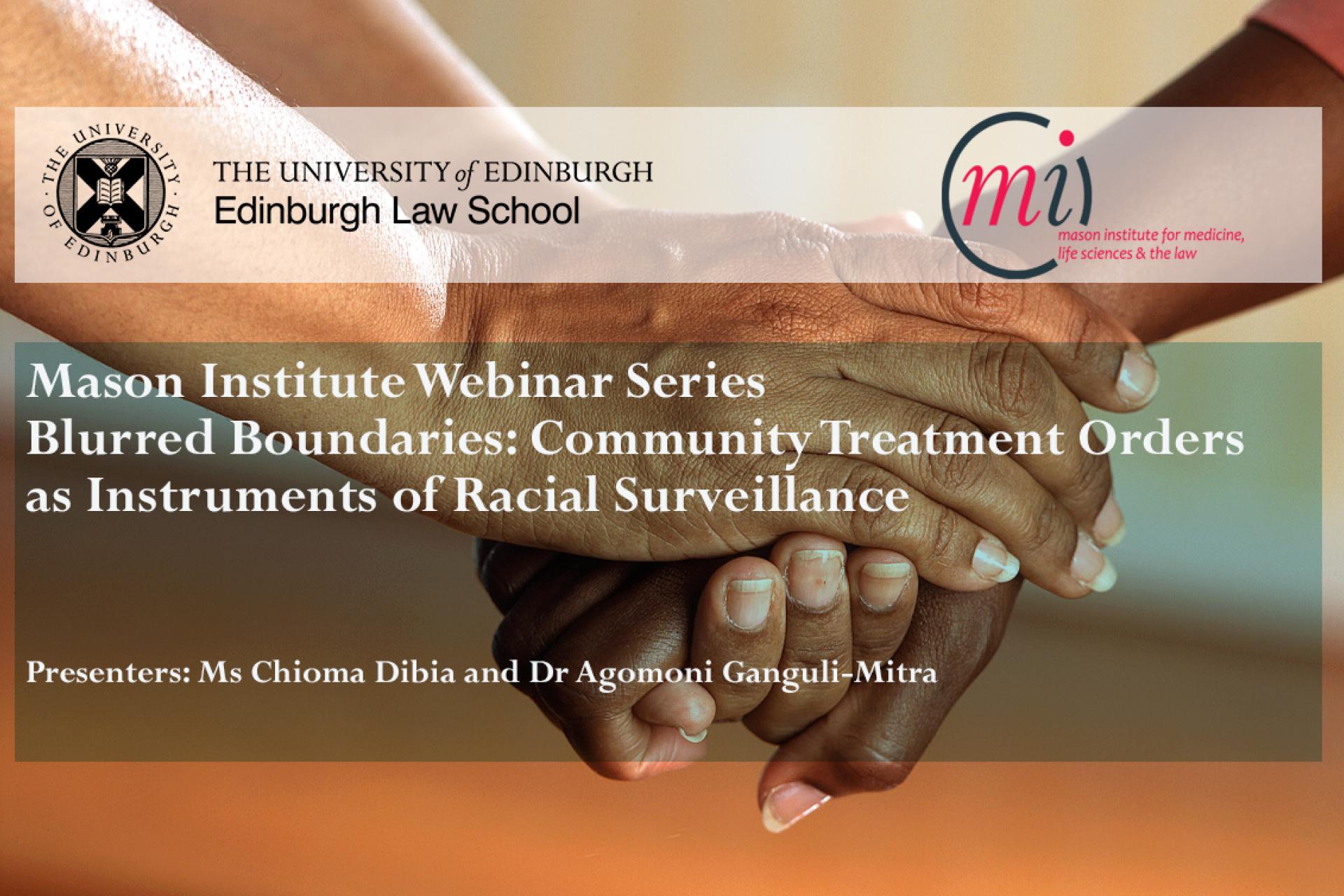Mason Institute Webinar Series: Blurred Boundaries: Community Treatment Orders as Instruments of Racial Surveillance

Location:
Online only
Date/time
Tue 5 March 2024
13:00 - 14:00
About this event
The Mental Health Act 1983 (MHA) is a coercive piece of legislation that authorises the compulsory detention and treatment of people with mental disorders who are perceived to pose a risk to themselves or to others. Since its enactment, there have been concerns that the coercive powers of the MHA have been disproportionately used for Black people with mental disorders. Even though Black people constitute only 4.2% of the population in England and Wales, data on the use of the MHA in 2021-22 shows that they are over four and a half times more likely to be detained in hospitals under the MHA than White people, and are more likely to be detained more than once.
However, the disproportionate impact of the MHA on Black people is most clearly seen in the excessive use of Community Treatment Orders (CTOs). CTOs were introduced in 2007 to address the ‘revolving door problem’. They empower clinicians to discharge patients detained under the MHA from the hospital, subject to recall for assessment or treatment in the hospital if the conditions of the CTO are breached. Although there is limited evidence on the effectiveness of CTOs, they continue to be used increasingly in the care of Black people, with current data showing that Black people are over eleven times more likely to be issued CTOs than White people. This is particularly concerning as CTOs are commonly perceived as intrusive and have been described as a form of racial surveillance by Black patients. Despite calls to abolish CTOs as part of the ongoing reform the MHA, the draft Bill of the Mental Health Act 1983 only changes the conditions for making CTOs and makes provisions for increased professional oversight in their use.
In this paper, we explore the idea of CTOs as instruments of racial surveillance and argue that their continued use in the care of Black people with mental disorders is an extension of the intrusive powers of the State and might constitute a form of racial injustice. We shall contend that since there is limited evidence as to the benefits of CTOs to patients broadly and Black patients in particular, the proposed changes to CTOs in the ongoing process of legal reform will not suffice. What is required, we argue, is an abolition of CTOs.
Presenter Bios:
Dr. Agomoni Ganguli-Mitra is Lecturer and Chancellor’s Fellow in Bioethics and Global Health Ethics, and Deputy-director of the JK Mason Institute for Medicine, Life Sciences and the Law. She is also a member of the Wellcome Trust-supported Centre for Biomedicine, Self and Society (where she co-leads the thematic strands Beyond Global and Beyond Sex). Dr. Ganguli-Mitra’s background is in bioethics, with a special interest in global bioethics, structural and gender justice. She has written on ethical issues related to global health emergencies, public health, global surrogacy, sex-selection, biomedical research, racism in health and the concepts of exploitation vulnerability and power in bioethics.
Chioma Dibia is a PhD student at the University of Edinburgh. Her research focuses on understanding the ways in which racism shapes how the Mental Health Act 1983 operates towards Black people. Her research interests include racial injustice in healthcare broadly and mental healthcare in particular.